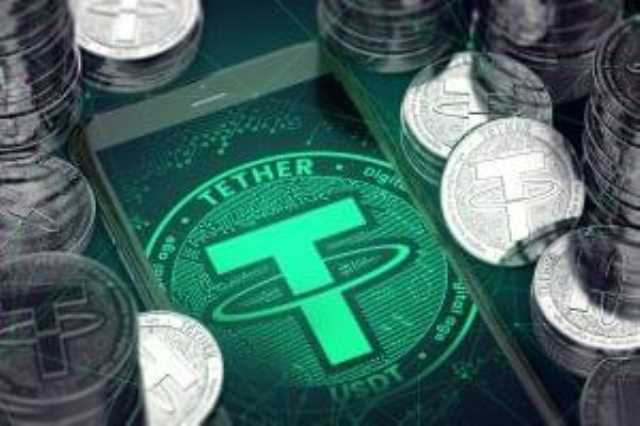Cryptocurrency Security Standard CCSS: Bridging the confidence challenge Deloitte Malta Technology

If you’re a cryptocurrency investor, it’s important to understand the existing crypto rules and stay alert to what may be on the horizon. Established organizations will be more open to joining the space as the risk of missing key aspects due to misunderstandings are less likely to occur. Insurance companies will now have that measuring stick to verify operations looking Cryptocurrency Security Standard for financial protection for themselves and their clients. Investors will have the ability to understand the readiness and maturity of the projects they choose to back. Phishing, ponzi schemes, fake initial coin offerings, pump and dump schemes, fraudulent social media giveaway schemes, malware, and ransomware are some of the common cryptocurrency attacks.
Best Practices for Resolving Concerns in Crypto Security
The insights gained from an audit can inform your strategic decision-making, helping you make informed choices about the development and deployment of blockchain and crypto. At Cryptosec, we understand the complexities of this space and offer a comprehensive CryptoCurrency Security Standard (CCSS) Audit service to ensure your systems are secure and compliant. These cryptocurrencies’ solid user bases, track records, and practical uses add to their general security. Therefore, if security is a big worry for you while you investigate the world of cryptocurrencies, these may be some of the best choices to consider. To enhance our community’s learning, we conduct frequent webinars, training sessions, seminars, and events and offer certification programs.
Importance of Cryptocurrency Security
- Non-compliance to this standard means that an organisation will not be able to conduct online payments through the use of credit cards.
- The success of online payments using traditional or fiat currencies can be partly attributed to the PCI DSS (Payment Card Industry Data Security Standard).
- The CCSSA-PR’s fee will be included in the CCSSA’s audit agreement with the entity.
- Our team’s deep knowledge of crypto and blockchain can supplement your internal audit team’s capabilities, providing the specialized expertise needed to effectively audit these complex technologies.
- In the case of sufficient evidence a CCSSA-PR has a material conflict of interest or another reason to not perform the review, the CCSSA must contact another CCSSA-PR on the PROL.
- The CCSSA can use their professional judgment where organizational controls do not meet CCSS controls descriptions but provide a similar level of protection.
It is important to note that CCSS is not a replacement for existing information security standards, but rather a framework to ensure the standardization of security controls across the cryptocurrency industry. One of the most critical requirements for cryptocurrency security is keeping your private keys secure. Private keys are essentially passwords that give you access to your digital assets, and they must be kept safe at all times.
Conclusion: CCSS Aspects and Requirement Help Crypto Adoption
- To ensure the security of cryptocurrency exchanges and wallets, CCSS has outlined several key security requirements that must be followed.
- In an industry where trust is paramount, an audit can provide reassurance to investors that your systems are secure and well-managed.
- Implementing the CryptoCurrency Security Standard (CCSS) brings numerous benefits to companies dealing with cryptocurrencies.
- Implementing best practices, like employing safe wallets, two-factor authentication, and routine software upgrades, is imperative.
- Further, to enhance security of the platform, Ethereum uses the proof-of-stake consensus method, which deters bad actors by not providing any means to exploit or control the network.
- Subsequently, providing the necessary confidence that cryptocurrency wallets are managed by controls that meet industry guidelines becomes a vital issue for anyone who uses any form of cryptocurrency.
- The CCSS standard cannot be compared to PCI DSS as an equivalent standard.
All cryptocurrency professionals who are certified by C4 recognize that such certification is a privilege that must be both earned and maintained. C4 certified professionals who intentionally violate any provision of the C4 Code of Ethics may be subject to disciplinary action which could include revocation of certification. A complaint process exists whereby suspected breaches of the C4 code of ethics by any C4 certified professional can be submitted anonymously online via this form.There are only three mandatory canons in the Code.

In the fast-paced world of digital business, robust audits and assessments are not just an option—they are a necessity. With Cryptosec’s https://www.tokenexus.com/ (CCSS) Audit service, you can confidently navigate the cryptocurrency space, knowing your systems are secure and compliant. We look forward to supporting your journey towards a secure and decentralized future. It can boost investor protections, deter illegal activity, and encourage mass adoption of digital assets. What’s not great is a lack of regulatory clarity, complex rules, and regulation by enforcement.
Attackers are often in a hurry to execute the attack and any hurdle delays their plans. They deploy automatic solvers, scripts and bots for this purpose but in vain as even the most intelligent bots cannot solve these challenges at scale. Arkose Matchkey challenges obstruct human attackers and engage them in challenges that keep increasing in volume and complexity. Attackers must spend more time and resources trying to clear the challenges at scale, which depletes the returns on investment, forcing them to give up and abandon the attack.
This evidence and the procedures performed should also be documented in the Audit Documentation for a CCSSA-PR to be able to inspect and verify the accuracy and completeness of information. The CCSSA is responsible for obtaining sufficient evidence pertaining to the completeness and accuracy of all information obtained in the performance of the CCSS audit. C4 will send an invoice for the Listing Fee to the CCSSA after approving the SRoC. You may wish to print it to paper so they are easily accessible while you are writing the exam. During the exam, you will be asked questions related to a real-world scenario.

While these standards focus on broader information security practices, CCSS specifically addresses the unique challenges and security requirements of cryptocurrencies. By implementing CCSS alongside existing standards, organizations can achieve a higher level of security for their cryptocurrency assets. To become a certified CCSS auditor, you must meet the qualifications set by the CryptoCurrency Certification Consortium (C4).
Understanding Blockchain
Based on previous CCSS Redacted RoC peer reviews, the estimated effort to conduct an initial peer review is 8-10 hours. Once the peer review is completed, the CCSSA-PR will submit any queries to the CCSSA and the CCSSA will have the opportunity to respond to these queries. The CCSSA-PR’s fee will be included in the CCSSA’s audit agreement with the entity.
